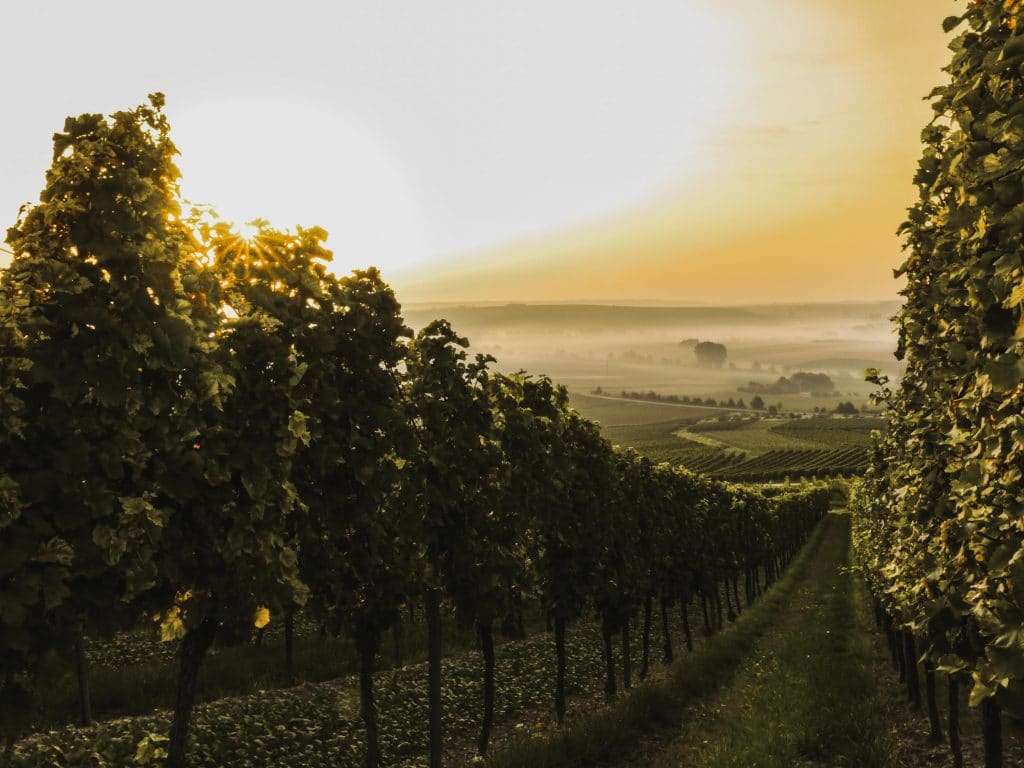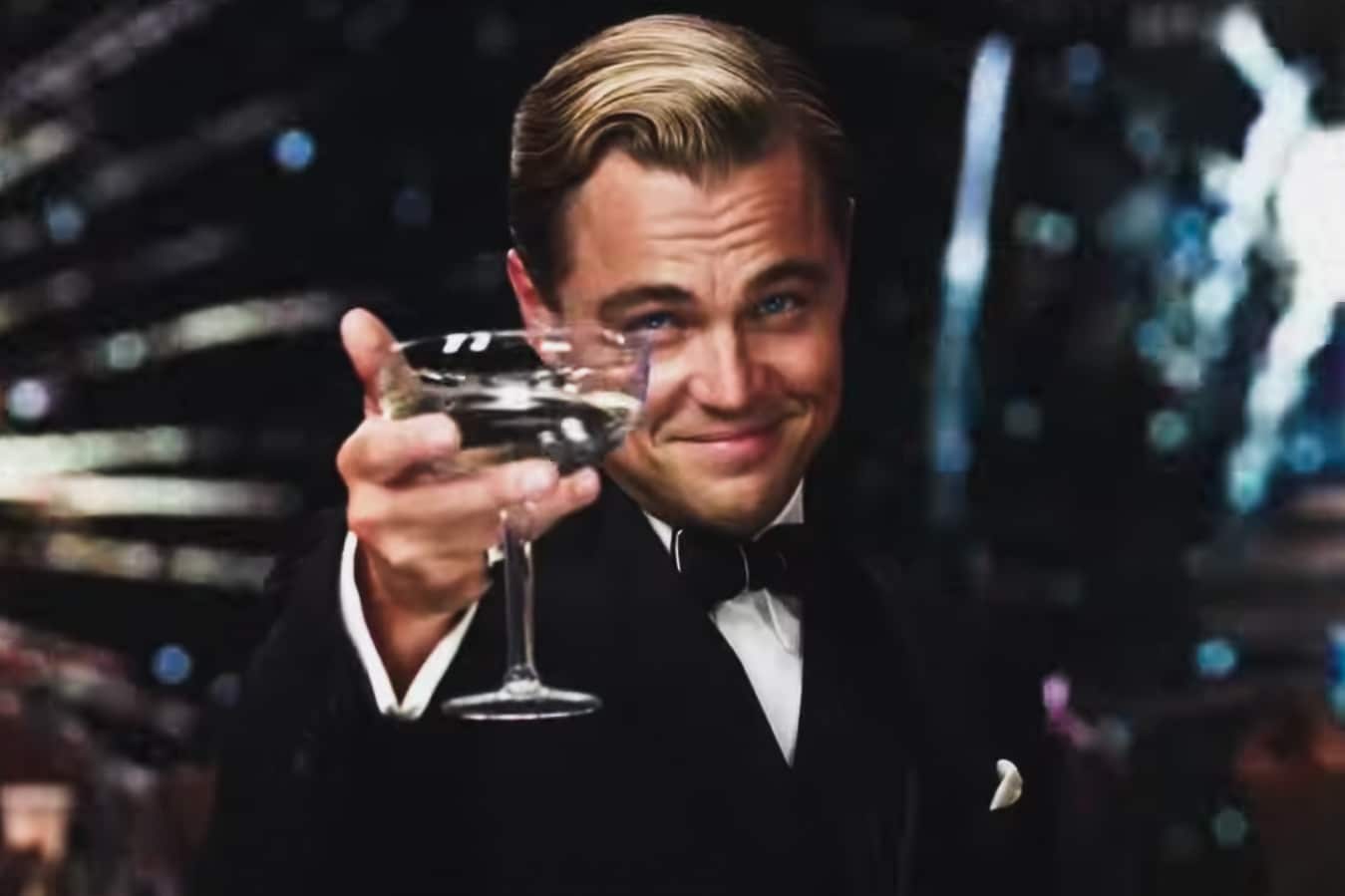Sustainable French champagne brand Telmont has a new investor: actor and environmentalist Leonardo DiCaprio.
In a move Jay Gatsby himself would surely approve of, Academy Award-winning actor Leonardo DiCaprio has invested in the century-old champagne producer, Telmont.
“From protecting biodiversity on its land, to using 100 percent renewable electricity, Champagne Telmont is determined to radically lower its environmental footprint, making me proud to join as an investor,” DiCaprio said in a statement.
The celebrity investor joins the luxury champagne brand in a bid to boost sustainability—a movement taking hold across the French wine industry, particularly in the Champagne region.
“Leonardo DiCaprio’s decision to become a shareholder sends Telmont a strong message of support that will encourage us as we carry out our ambitious plans,” Ludovic du Plessis, Chairman & Shareholder of Champagne Telmont said in a statement shared on Instagram.
“We share the same convictions and the same commitment to protecting the environment. The House has one foot in tradition and the other in modernity, but both firmly rooted in (and on) the terroir! We aim to act in the name of Mother Nature in everything we do” du Plessis said.
Telmont was founded in 1912 in the Damery village by winegrower Henri Lhôpital, following the Champagne riots of 1911. A family-run business ever since, the French beverage company Rémy Cointreau purchased a majority stake in 2020.
The company released its sustainability goals last year, including a shift to organic grape production across 100 percent of its vineyards by 2025. It surpassed 72 percent last summer. The winemaker also switched to fully recyclable glass bottles and dropped its gift boxes to reduce its footprint. Freight providers must meet a CSR score compliant with France’s Corporate Duty and Vigilance Law.
Across its manufacturing facilities, Telmont is moving to renewable energy sources, including solar, and using electric vehicles across the estate.
Its majority stakeholder, Rémy Cointreau, has been greening its operations, too. Last November, it announced it had taken steps to reduce its environmental impact, releasing 0.5 kg of CO2 for each euro of operating profit, it said. That’s well below the industry average of 4.5kg.
Rémy Cointreau launched #APlanetOfException, an initiative that includes the brand joining the Science-Based Targets Initiatives to reduce its carbon footprint, as well as commitments to contributing to climate actions in its primary markets.
“Our Houses are rooted in terroirs handed down from generation to generation. Climate change and its consequences on our crops constitute a major challenge for the Group,” Eric Vallat, CEO of the Rémy Cointreau Group, said in a statement last year.
“We are preparing for it, but we also have to fight against it with all our strength. To help protect our planet, we are proud to announce our ambition of achieving carbon neutrality, starting in 2021/2022. This major long-term commitment can’t be an end in itself though. It drives us to strive for our ambitious goals to reduce our own emissions,” he said.
Sustainable winemaking in France
Champagne as a region is redefining its approach to winemaking. In 2015, the Comité Champagne and France’s Ministry of Agriculture defined more than 120 points of sustainability, covered by the Sustainable Viticulture in Champagne certification. Since 2015, more than 15 percent of vineyards across the region are certified, but the region’s goal is 100 percent compliance.

It may meet it. France’s National Wine Sector says half of the country’s wine producers will meet sustainability standards or achieve organic certification (or both) by 2025. France is the world’s largest wine producer, responsible for more than 16 percent of all wine production.
Last year, the Comité Champagne committed to reducing chemical use by 50 percent, as well as reducing the carbon footprint of champagne bottles by 15 percent. It’s also working toward 100 percent sustainability in viticulture efforts across the region.
DiCaprio’s environmental investments
DiCaprio is known for his environmentalism. He’s the founder of Re:wild, formerly the Leonardo DiCaprio Foundation, which works to promote conservation and biodiversity.
He has invested in a number of sustainability-focused brands including agriculture disruptors Los Angeles-based Beyond Meat, as well as cultivated meat producers: Israel’s Aleph Farms, and the Netherlands’ Mosa Meat. He also invested in the chickpea snack brand Hippeas.
Last year DiCaprio joined the advisory board of Perfect Day, the dairy-identical Bay Area startup. Earlier this week, DiCaprio announced an investment into Wildtype, the Bay Area cultivated fish company working to bring cell-based salmon to market.
“Climate change is real, it is happening right now. It is the most urgent threat facing our entire species, and we need to work collectively together and stop procrastinating,” DiCaprio said during his Best Actor Oscars acceptance speech in 2016 for The Revenant.
Last December, the actor appeared in the Oscar-nominated Netflix film, Don’t Look Up, which takes a satirical approach to the climate crisis.
Earlier this week, DiCaprio joined a roster of celebrities in supporting The Fashion Sustainability and Social Accountability Act—a New York effort that would hold the fashion industry accountable for its environmental impact.


